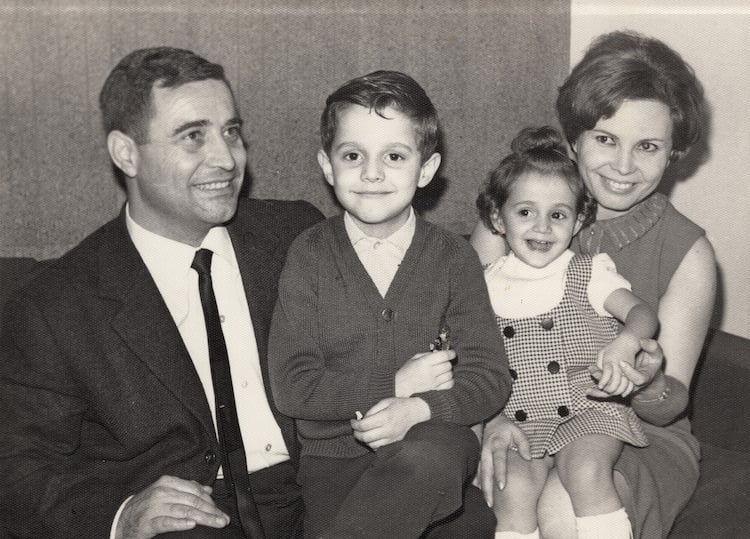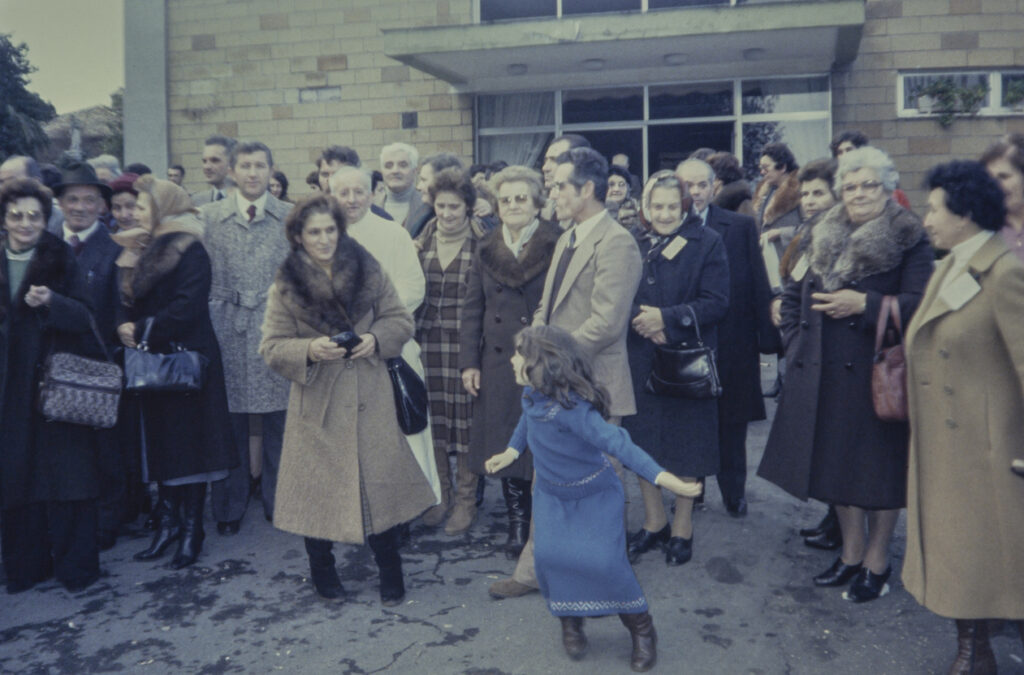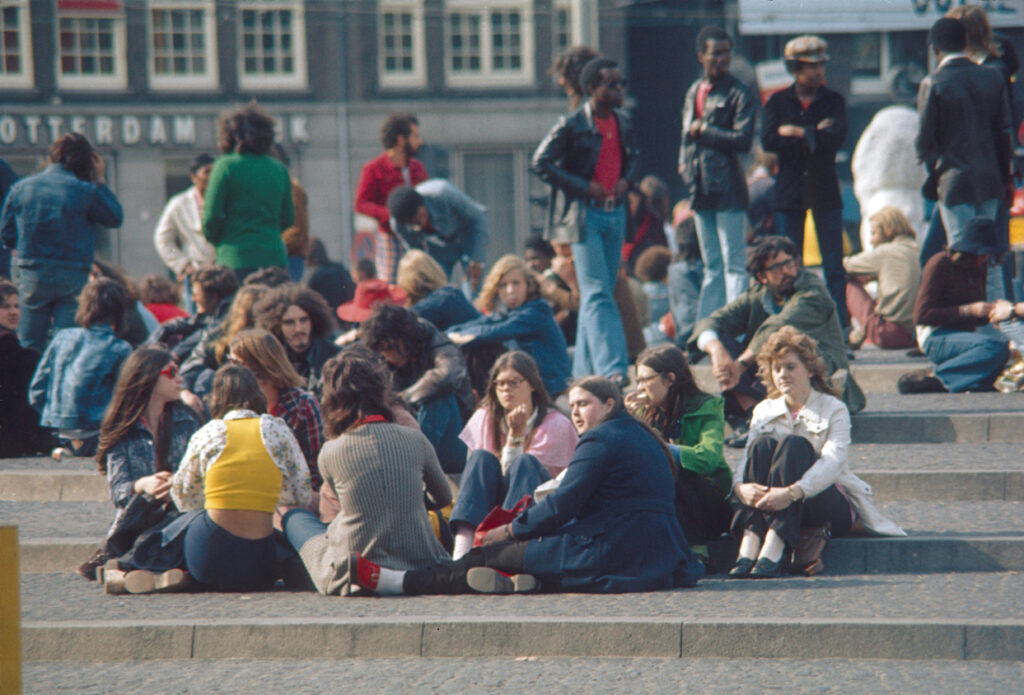Discover timeless wisdom from Boomers that can guide Millennials toward a balanced, fulfilling life.

Boomers were shaped by a time of rapid change and collective resilience. They experienced post-war rebuilding, cultural revolutions, and personal milestones without the modern conveniences we now take for granted. From this foundation, they developed values centered around hard work, patience, gratitude, and enduring relationships. These life lessons weren’t just products of the era—they were guiding principles that helped people lead meaningful, grounded lives, even in the face of adversity.
Millennials, by contrast, are navigating a hyper-connected, fast-moving world where information is instant but fulfillment can feel elusive. While the tools and environment have changed, the core needs remain the same. Boomers’ timeless insights can offer Millennials a practical roadmap for slowing down, making thoughtful choices, and investing in what truly matters. These 15 life lessons continue to provide clarity and purpose across generations.
1. Hard work is the foundation of long-term success.

Boomers understood from an early age that success wasn’t a stroke of luck or a matter of timing—it was the product of consistent effort and determination. They put in the hours, whether through manual labor, years of education, or starting from the bottom of a company ladder. Hard work built not just careers, but character. It instilled discipline, grit, and a sense of purpose that endured far beyond a paycheck.
Millennials, surrounded by a culture that sometimes rewards speed over substance, can rediscover the power of effort over shortcuts. Embracing challenges instead of avoiding them builds confidence and competence. While technology can automate many tasks, hard work still fuels personal growth and long-term achievement. Work ethic remains a defining value for older generations, and passing that mindset on can benefit younger ones immensely, as stated at Pew Research.
2. Saving money is a habit that builds security and freedom.

Boomers didn’t rely on credit cards or digital budgeting apps. They used envelopes, bankbooks, and mental math to stay within their means. Saving was more than a financial strategy—it was a way of life. They built emergency funds, planned for retirement early, and resisted the pull of consumer culture. Their restraint gave them financial breathing room and the freedom to weather life’s storms without constant anxiety.
Millennials, burdened with student debt and rising living costs, may feel saving is out of reach. But adopting even small habits—like automating savings, cutting unnecessary expenses, or prioritizing needs over wants—can make a profound difference. Financial literacy and discipline offer more than just money in the bank; they create peace of mind and future opportunities. Financial stability is closely tied to long-term life satisfaction and mental well-being, as mentioned at Investopedia.
3. Patience is a virtue that leads to better outcomes.

Boomers came of age in a slower world—one without instant messages, overnight shipping, or same-day gratification. Waiting was part of life. They learned to be patient not just with outcomes, but with people, goals, and even themselves. This patience built emotional resilience and allowed for deeper appreciation of what they eventually achieved or received.
In contrast, Millennials are bombarded by rapid results and real-time comparisons. The pressure to achieve quickly can lead to burnout or disappointment. But by embracing a slower, more thoughtful pace, they can improve decision-making, reduce stress, and build a more sustainable life path. Delayed gratification, while old-fashioned to some, is actually a powerful tool for navigating both personal and professional goals, as reported at Psychology Today.
4. Face-to-face communication strengthens relationships.

Boomers relied heavily on in-person interactions—family dinners, heartfelt conversations, and shared community events. This helped them develop strong interpersonal skills and deep emotional bonds. They looked people in the eye, read body language, and valued uninterrupted conversations. These experiences cultivated trust, empathy, and stronger connections.
Millennials often navigate relationships through text, social media, and video calls. While these tools offer convenience, they can’t fully replace the nuances of face-to-face engagement. Making time for in-person interaction—whether through shared meals, phone calls, or visits—deepens trust and fosters more genuine relationships. Investing in these moments offers lasting emotional rewards that go beyond screen interactions.
5. Self-reliance fosters confidence and independence.

Boomers were taught to fix things, solve problems, and figure things out without always relying on others. Whether it was changing a tire, cooking a meal, or managing finances, they developed a strong sense of autonomy. This sense of self-reliance helped them face life’s uncertainties with assurance and adaptability.
Millennials, though skilled at researching solutions online, may benefit from trusting their instincts and embracing trial and error. Learning by doing creates deeper understanding and builds inner confidence. While support is valuable, relying on one’s own judgment and abilities is a powerful way to develop resilience and maturity in a fast-changing world.
6. Respecting elders creates meaningful intergenerational bonds.

Boomers were taught to listen to and learn from their elders. Conversations with grandparents or community elders were common and deeply valued. This respect wasn’t just about manners—it was about honoring life experience and gaining perspective. These relationships provided emotional support and passed down stories and wisdom that enriched their worldview.
In today’s youth-driven culture, it’s easy to overlook the insights of older generations. But for Millennials, forming relationships with elders can bring valuable guidance and grounding. These conversations offer life lessons that no online course can replicate. Respecting and connecting with older adults deepens empathy and preserves the intergenerational ties that keep communities strong.
7. Gratitude transforms challenges into growth opportunities.

Boomers often practiced gratitude without needing reminders. They found joy in what they had—even when times were tough. Gratitude helped them shift focus from what was lacking to what was already present, which in turn nurtured resilience and emotional strength. It allowed them to reframe adversity as an opportunity to learn and grow.
Millennials, frequently exposed to social comparison and curated images of success, may struggle with contentment. Cultivating gratitude, even through simple habits like journaling or expressing thanks, can improve mental health and personal satisfaction. Gratitude isn’t just about being thankful—it’s about seeing life through a lens that values progress and perspective, even during setbacks.
8. Community involvement fosters a sense of belonging.

Boomers were active in their communities—they joined neighborhood committees, organized block parties, and showed up at local events. These connections fostered a sense of belonging and purpose. Being part of something larger gave them support during difficult times and joy during celebrations. It reinforced that everyone had a role in making their environment stronger.
Millennials, often disconnected from their physical communities, can rediscover this sense of belonging through volunteering, attending local gatherings, or joining interest-based groups. Community involvement not only combats loneliness but also builds purpose and shared identity. Engaging in something bigger than oneself is a powerful antidote to isolation and disconnection.
9. Life is about quality over quantity in relationships.

Boomers didn’t need hundreds of friends—they valued a small circle they could trust and depend on. They cultivated long-term relationships rooted in loyalty, empathy, and shared history. These deep connections provided emotional support that stood the test of time, even through life’s inevitable ups and downs.
In a world where online likes and followers can be mistaken for friendship, Millennials can benefit from focusing on depth rather than reach. Building a few strong, authentic relationships can lead to more meaningful and fulfilling experiences. Emotional intimacy, trust, and shared vulnerability can’t be measured in numbers, but they’re what truly sustain us.
10. Planning for the future ensures a smoother journey.

Boomers were planners. Whether saving for retirement, buying a home, or investing in education, they understood the value of preparing for what lies ahead. Long-term thinking reduced financial stress and gave them a roadmap through life’s major milestones. It also allowed them to enjoy life with a sense of stability and control.
Millennials, who often face financial uncertainty, can reclaim this mindset through careful goal-setting and planning. Creating a budget, mapping out long-term goals, and making intentional choices build momentum toward security and peace of mind. Thoughtful planning doesn’t mean living rigidly—it means paving the way for greater freedom and flexibility in the future.
11. A strong work-life balance leads to happiness and health.

Boomers knew that rest wasn’t a reward—it was a necessity. They valued time spent with family, engaging in hobbies, or simply relaxing after a day’s work. This balance helped them recharge, avoid burnout, and keep personal relationships thriving. They understood that success wasn’t measured only by productivity but also by overall well-being.
Millennials often feel pressure to hustle constantly, risking their physical and emotional health. By adopting healthier boundaries and prioritizing leisure and connection, they can create lives that are not only successful but also sustainable. Work-life balance isn’t about doing less—it’s about doing what matters most, without sacrificing mental and physical health.
12. Cherishing life’s simple pleasures brings joy and peace.

Boomers found beauty in ordinary moments—a walk after dinner, a homemade meal, or a quiet morning with coffee. These small rituals brought comfort and happiness that no luxury purchase could match. This appreciation for simplicity made them more grounded, content, and present in daily life.
Millennials, constantly stimulated by digital media and consumer culture, may benefit from reconnecting with life’s simple pleasures. Practicing mindfulness, savoring routines, and slowing down can reduce anxiety and increase satisfaction. Happiness isn’t always in the grand adventures—it’s often found in the quiet, ordinary spaces we tend to overlook.
13. Kindness is a strength that creates lasting impact.

Boomers often lived by the golden rule—treat others the way you want to be treated. Acts of kindness were woven into daily life, from helping a neighbor to volunteering in the community. They knew that kindness builds relationships, diffuses conflict, and strengthens community bonds over time.
For Millennials navigating an often polarized world, choosing kindness can be a powerful act of resistance. Kindness doesn’t require grand gestures—small acts, done consistently, ripple outward and create meaningful change. It leaves a lasting legacy that far outlives any material accomplishment and nurtures both the giver and the receiver.
14. Personal growth is a lifelong journey.

Boomers didn’t stop learning after school. Many pursued new hobbies, explored spiritual practices, or returned to education later in life. This continuous growth helped them stay mentally sharp and emotionally fulfilled. They didn’t see aging as a decline, but as an opportunity for further discovery.
Millennials, navigating constant change and reinvention, can benefit from embracing a mindset of lifelong learning. Whether through books, courses, or self-reflection, continuous growth helps maintain adaptability and joy. Every season of life offers new lessons, and the pursuit of self-betterment ensures that life remains meaningful at every stage.
15. Family is a cornerstone of a meaningful life.

Boomers often centered their lives around family—celebrating milestones together, maintaining traditions, and showing up for one another during hard times. These connections weren’t always perfect, but they provided unconditional love and belonging. Family gave them identity, support, and a sense of home that transcended location or circumstance.
In an age of increasing independence and mobility, Millennials can still find grounding in nurturing familial bonds. Whether through regular calls, shared meals, or honoring traditions, investing in family creates a foundation of love and support. Family, chosen or biological, reminds us who we are and provides a lifelong source of comfort and joy.
